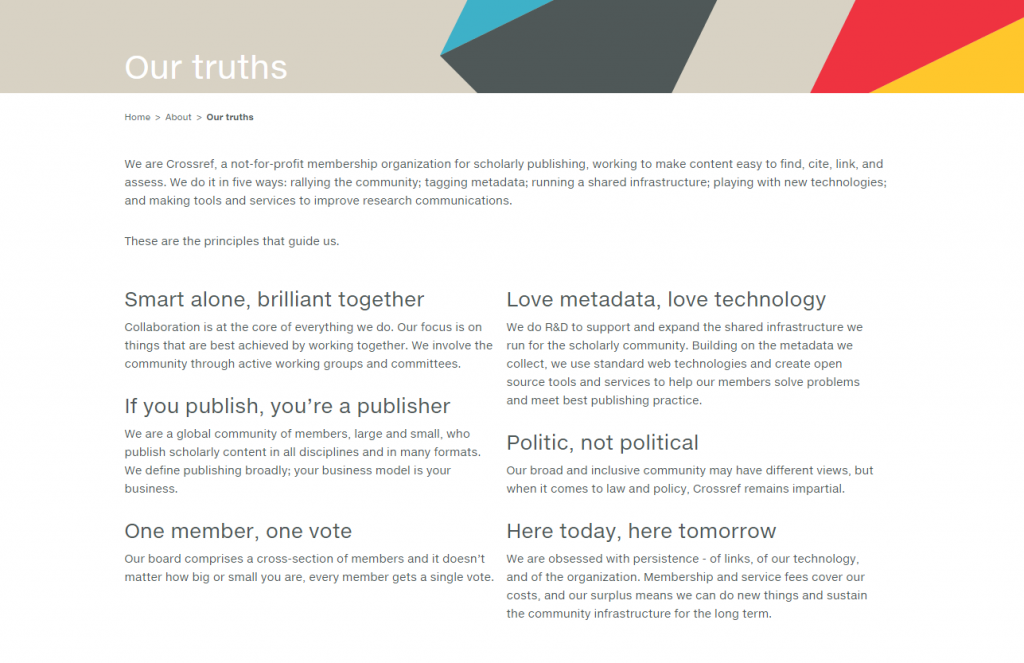As a follow-up to our blog posts on the Crossref REST API we talked to SHARE about the work they’re doing, and how they’re employing the Crossref metadata as a piece of the puzzle.
Crossref Blog

Crossref was founded to enable collaboration between publishers. As our membership has grown and diversified over recent years, it’s becoming even more vital that we take input from a representative cross-section of the membership.
Crossref LIVE16 opened with a Mashup Day on 1st November 2016 in London. Attendees from the scholarly communications world met to chat with Crossref team members in an open house atmosphere.

As the linking hub for scholarly content, it’s our job to tame URLs and put in their place something better. Why? Most URLs suffer from link rot and can be created, deleted or changed at any time. And that’s a problem if you’re trying to cite them.
We’re excited to say that we’ve finished the work on our infrastructure to allow members to register preprints. Want to know why we’re doing this?
The scholarly communications sector has built and adopted a series of open identifier and metadata infrastructure systems to great success. Content identifiers (through Crossref and DataCite) and contributor identifiers (through ORCID) have become foundational infrastructure to the industry. But there still seems to be one piece of the infrastructure that is missing.
A bit different from our traditional meetings, Crossref LIVE16 next week is the first of a totally new annual event for the scholarly communications community. Our theme is Smart alone; brilliant together. We have a broad program of both informal and plenary talks across two days.
New features, new indexing, new name - oh my! TL;DR The indexing of Similarity Check users’ content into the shared full-text database is about to get a lot faster.

Watch for two important emails on September 30 th – one with a voting link and material, and one with your username and password. Running Crossref well is a key part of our mission. It’s important that we be as neutral and fair as possible, and we are always striving for that balance.
TL;DR Crossref will be updating its DOI Display Guidelines within the next couple of weeks. This is a big deal. We last made a change in 2011 so it’s not something that happens often or that we take lightly.
You might recognize my name if you’ve ever applied for Crossref membership on behalf of your organisation. It recently occurred to me that, since I’ve been working in our membership department for eight years, I’ve been a part of shepherding new members for half of our history.